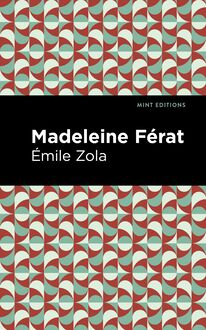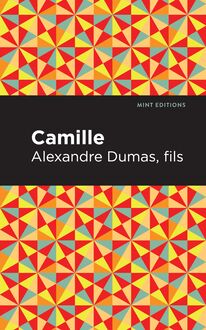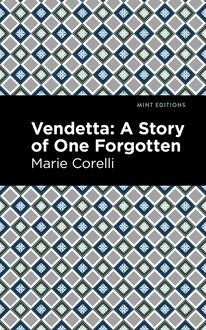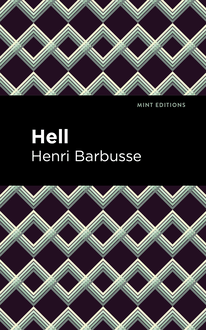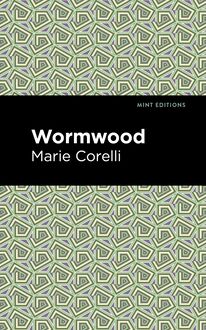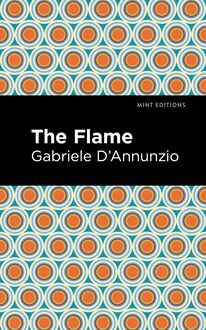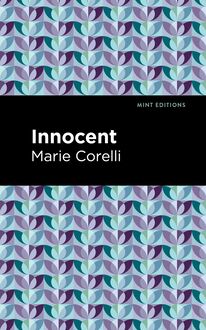-
 Univers
Univers
-
 Ebooks
Ebooks
-
 Livres audio
Livres audio
-
 Presse
Presse
-
 Podcasts
Podcasts
-
 BD
BD
-
 Documents
Documents
-
- Cours
- Révisions
- Ressources pédagogiques
- Sciences de l’éducation
- Manuels scolaires
- Langues
- Travaux de classe
- Annales de BEP
- Etudes supérieures
- Maternelle et primaire
- Fiches de lecture
- Orientation scolaire
- Méthodologie
- Corrigés de devoir
- Annales d’examens et concours
- Annales du bac
- Annales du brevet
- Rapports de stage
La lecture à portée de main
Vous pourrez modifier la taille du texte de cet ouvrage
Découvre YouScribe en t'inscrivant gratuitement
Je m'inscrisDécouvre YouScribe en t'inscrivant gratuitement
Je m'inscrisEn savoir plus
Vous pourrez modifier la taille du texte de cet ouvrage
En savoir plus

Description
Hell (1908) is a novel by Henri Barbusse. Immensely popular upon its publication in France, Hell earned Barbusse a reputation as a leading realist whose existential preoccupations predate the novels and plays of Samuel Beckett, Albert Camus, and Jean-Paul Sartre by several decades. His portrait of ennui, isolation, and urban life remains both stylistically and thematically fresh over a century after it appeared in print. “A whole world of human beings had passed here like smoke, leaving nothing white but the window. And I? I am a man like every other man, just as that evening was like every other evening.” In this claustrophobic, lyric novel, an unnamed narrator moves into a rundown apartment in Paris. There, he grows increasingly isolated from the world outside, turning instead to the lives of his many neighbors. Through the thin walls, which contain a hidden peephole, he listens and watches as strangers conduct the secret dramas of their daily lives. Witnessing acts of adultery, lesbianism, incest, theft, and abuse, he grows increasingly dependent on the adrenaline rush of voyeurism, withdrawing further and further from the life of the bustling city. With a beautifully designed cover and professionally typeset manuscript, this edition of Henri Barbusse’s Hell is a classic work of French literature reimagined for modern readers.
Sujets
Informations
| Publié par | Mint Editions |
| Date de parution | 28 mai 2021 |
| Nombre de lectures | 0 |
| EAN13 | 9781513288284 |
| Langue | English |
| Poids de l'ouvrage | 1 Mo |
Informations légales : prix de location à la page 0,0400€. Cette information est donnée uniquement à titre indicatif conformément à la législation en vigueur.
Extrait
Hell
Henri Barbusse
Hell was first published in 1908.
This edition published by Mint Editions 2021.
ISBN 9781513283265 | E-ISBN 9781513288284
Published by Mint Editions ®
minteditionbooks.com
Publishing Director: Jennifer Newens
Design & Production: Rachel Lopez Metzger
Project Manager: Micaela Clark
Translated by: Edward J. O’Brien
Typesetting: Westchester Publishing Services
C ONTENTS I II III IV V VI VII VIII IX X XI XII XIII XIV XV XVI XVII
I
T he landlady, Madame Lemercier, left me alone in my room, after a short speech impressing upon me all the material and moral advantages of the Lemercier boarding-house.
I stopped in front of the glass, in the middle of the room in which I was going to live for a while. I looked round the room and then at myself.
The room was grey and had a dusty smell. I saw two chairs, one of which held my valise, two narrow-backed armchairs with smeary upholstery, a table with a piece of green felt set into the top, and an oriental carpet with an arabesque pattern that fairly leaped to the eye.
This particular room I had never seen before, but, oh, how familiar it all was—that bed of imitation mahogany, that frigid toilet table, that inevitable arrangement of the furniture, that emptiness within those four walls.
The room was worn with use, as if an infinite number of people had occupied it. The carpet was frayed from the door to the window—a path trodden by a host of feet from day to day. The moulding, which I could reach with my hands, was out of line and cracked, and the marble mantelpiece had lost its sharp edges. Human contact wears things out with disheartening slowness.
Things tarnish, too. Little by little, the ceiling had darkened like a stormy sky. The places on the whitish woodwork and the pink wallpaper that had been touched oftenest had become smudgy—the edge of the door, the paint around the lock of the closet and the wall alongside the window where one pulls the curtain cords. A whole world of human beings had passed here like smoke, leaving nothing white but the window.
And I? I am a man like every other man, just as that evening was like every other evening.
I HAD BEEN TRAVELLING SINCE morning. Hurry, formalities, baggage, the train, the whiff of different towns.
I fell into one of the armchairs. Everything became quieter and more peaceful.
My coming from the country to stay in Paris for good marked an epoch in my life. I had found a situation here in a bank. My days were to change. It was because of this change that I got away from my usual thoughts and turned to thoughts of myself.
I was thirty years old. I had lost my father and mother eighteen or twenty years before, so long ago that the event was now insignificant. I was unmarried. I had no children and shall have none. There are moments when this troubles me, when I reflect that with me a line will end which has lasted since the beginning of humanity.
Was I happy? Yes, I had nothing to mourn or regret, I had no complicated desires. Therefore, I was happy. I remembered that since my childhood I had had spiritual illuminations, mystical emotions, a morbid fondness for shutting myself up face to face with my past. I had attributed exceptional importance to myself and had come to think that I was more than other people. But this had gradually become submerged in the positive nothingness of every day.
T HERE I WAS NOW IN that room.
I leaned forward in my armchair to be nearer the glass, and I examined myself carefully.
Rather short, with an air of reserve (although there are times when I let myself go); quite correctly dressed; nothing to criticise and nothing striking about my appearance.
I looked close at my eyes. They are green, though, oddly enough, people usually take them for black.
I believed in many things in a confused sort of way, above all, in the existence of God, if not in the dogmas of religion. However, I thought, these last had advantages for poor people and for women, who have less intellect than men.
As for philosophical discussions, I thought they are absolutely useless. You cannot demonstrate or verify anything. What was truth, anyway?
I had a sense of good and evil. I would not have committed an indelicacy, even if certain of impunity. I would not have permitted myself the slightest overstatement.
If everyone were like me, all would be well.
I T WAS ALREADY LATE . I was not going to do anything. I remained seated there, at the end of the day, opposite the looking-glass. In the setting of the room that the twilight began to invade, I saw the outline of my forehead, the oval of my face, and, under my blinking eyelids, the gaze by which I enter into myself as into a tomb.
My tiredness, the gloominess (I heard rain outside), the darkness that intensified my solitude and made me look larger, and then something else, I knew not what, made me sad. It bored me to be sad. I shook myself. What was the matter? Nothing. Only myself.
I have not always been alone in life as I was that evening. Love for me had taken on the form and the being of my little Josette. We had met long before, in the rear of the millinery shop in which she worked at Tours. She had smiled at me with singular persistence, and I caught her head in my hands, kissed her on the lips—and found out suddenly that I loved her.
I no longer recall the strange bliss we felt when, we first embraced. It is true, there are moments when I still desire her as madly as the first time. This is so especially when she is away. When she is with me, there are moments when she repels me.
We discovered each other in the holidays. The days when we shall see each other again before we die—we could count them—if we dared.
To die! The idea of death is decidedly the most important of all ideas. I should die some day. Had I ever thought of it? I reflected. No, I had never thought of it. I could not. You can no more look destiny in the face than you can look at the sun, and yet destiny is grey.
And night came, as every night will come, until the last one, which will be too vast.
But all at once I jumped up and stood on my feet, reeling, my heart throbbing like the fluttering of wings.
What was it? In the street a horn resounded, playing a hunting song. Apparently some groom of a rich family, standing near the bar of a tavern, with cheeks puffed out, mouth squeezed tight, and an air of ferocity, astonishing and silencing his audience.
But the thing that so stirred me was not the mere blowing of a horn in the city streets. I had been brought up in the country, and as a child I used to hear that blast far in the distance, along the road to the woods and the castle. The same air, the same thing exactly. How could the two be so precisely alike?
And involuntarily my hand wavered to my heart.
Formerly—today—my life—my heart—myself! I thought of all this suddenly, for no reason, as if I had gone mad.
M Y PAST—WHAT HAD I ever made of myself? Nothing, and I was already on the decline. Ah, because the refrain recalled the past, it seemed to me as if it were all over with me, and I had not lived. And I had a longing for a sort of lost paradise.
But of what avail to pray or rebel? I felt I had nothing more to expect from life. Thenceforth, I should be neither happy nor unhappy. I could not rise from the dead. I would grow old quietly, as quiet as I was that day in the room where so many people had left their traces, and yet no one had left his own traces.
This room—anywhere you turn, you find this room. It is the universal room. You think it is closed. No, it is open to the four winds of heaven. It is lost amid a host of similar rooms, like the light in the sky, like one day amid the host of all other days, like my “I” amid a host of other I’s.
I, I! I saw nothing more now than the pallor of my face, with deep orbits, buried in the twilight, and my mouth filled with a silence which gently but surely stifles and destroys.
I raised myself on my elbow as on a clipped wing. I wished that something partaking of the infinite would happen to me.
I had no genius, no mission to fulfil, no great heart to bestow. I had nothing and I deserved nothing. But all the same I desired some sort of reward.
Love. I dreamed of a unique, an unheard-of idyll with a woman far from the one with whom I had hitherto lost all my time, a woman whose features I did not see, but whose shadow I imagined beside my own as we walked along the road together.
Something infinite, something new! A journey, an extraordinary journey into which to throw myself headlong and bring variety into my life. Luxurious, bustling departures surrounded by solicitous inferiors, a lazy leaning back in railway trains that thunder along through wild landscapes and past cities rising up and growing as if blown by the wind.
Steamers, masts, orders given in barbarous tongues, landings on golden quays, then strange, exotic faces in the sunlight, puzzlingly alike, and monuments, familiar from pictures, which, in my tourist’s pride, seem to have come close to me.
My brain was empty, my heart arid. I had never found anything, not even a friend. I was a poor man stranded for a day in a boarding-house room where everybody comes and everybody goes. And yet I longed for glory! For glory bound to me like a miraculous wound that I should feel and everybody would talk about. I longed for a following of which I should be the leader, my name acclaimed under the heavens like a new clarion call.
But I felt my grandeur slip away. My childish imagination played in vain with those boundless fancies. There was nothing more for me to expect from life. There was only I, who, stripped by the night, rose upward like a cry.
I could hardly see any more in the dark. I guessed at, rather than saw, myself in the mirror. I had a realising sense of my weakness and captivity. I held my hands out toward the window, my outstretched fingers making them look like something torn. I lifte
-
 Univers
Univers
-
 Ebooks
Ebooks
-
 Livres audio
Livres audio
-
 Presse
Presse
-
 Podcasts
Podcasts
-
 BD
BD
-
 Documents
Documents
-
Jeunesse
-
Littérature
-
Ressources professionnelles
-
Santé et bien-être
-
Savoirs
-
Education
-
Loisirs et hobbies
-
Art, musique et cinéma
-
Actualité et débat de société
-
Jeunesse
-
Littérature
-
Ressources professionnelles
-
Santé et bien-être
-
Savoirs
-
Education
-
Loisirs et hobbies
-
Art, musique et cinéma
-
Actualité et débat de société
-
Actualités
-
Lifestyle
-
Presse jeunesse
-
Presse professionnelle
-
Pratique
-
Presse sportive
-
Presse internationale
-
Culture & Médias
-
Action et Aventures
-
Science-fiction et Fantasy
-
Société
-
Jeunesse
-
Littérature
-
Ressources professionnelles
-
Santé et bien-être
-
Savoirs
-
Education
-
Loisirs et hobbies
-
Art, musique et cinéma
-
Actualité et débat de société
- Cours
- Révisions
- Ressources pédagogiques
- Sciences de l’éducation
- Manuels scolaires
- Langues
- Travaux de classe
- Annales de BEP
- Etudes supérieures
- Maternelle et primaire
- Fiches de lecture
- Orientation scolaire
- Méthodologie
- Corrigés de devoir
- Annales d’examens et concours
- Annales du bac
- Annales du brevet
- Rapports de stage
